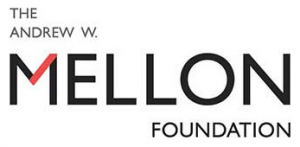Fátima Suárez
2019-2020
Mellon Fellow
Affiliation at time of award:
PhD Candidate
Department of Sociology
University of California, Santa Barbara

Fatima Suárez
The Meanings of Latino Fatherhoods
The Meanings of Latino Fatherhoods focuses on the diverse experiences of Latino men in the role of fathers and explores how their cultural experiences influence their views of what it means to be a good father and a good man. Suárez pursues such questions as, how do the intersections of class, age, and generation in the United States affect Latino men’s understandings of fatherhood; how do Latino men enact the meanings they attach to fatherhood; how do Latino men monitor one another’s fatherhood; and how do Latino fathers describe the emotional labor of fathering? Her analytical assessment largely focuses on the class, age, and generational dimensions of fathering.
Suárez’s preliminary data analysis suggests that Latino fathers are crafting an ethic of “doing better every day” in response to the “new fatherhood” ideal wherein men combine breadwinning with availability, engagement, and nurturing. The data also show that fathers’ sense of self-worth as men significantly influences how they parent their children and their faith in themselves as good fathers. Other factors that play a significant role in shaping study participants’ masculinities and definitions of fatherhood over time are their interactions and relationships with women and the influence, or lack thereof, of their own fathers.
Suárez’s study is yielding rich data to be incorporated into a volume on Latino fatherhood that will be influential in not just the fields of Latinx studies, but also in the fields of sociology, gender studies, anthropology, and others.

COLLOQUIUM
Speaker: Fátima Suárez, PhD candidate, Department of Sociology University of California, Santa Barbara
Location: Eric S. Dobkin Boardroom, School for Advanced Research, Santa Fe, NM
Fátima Suárez presents on her conversations with 60 Latino fathers in California about what fatherhood means to them and what significance it plays in their lives. In contrast to widespread academic information about Latino men and fathers, Suárez suggests that work, family relationships, histories, and past traumas shape Latino men’s experiences of fatherhood, thus dispelling the notion of the Latino father as a unitary subject. Suárez will speak about her research and the possible implications of the data for Latinx studies and for society as a whole.